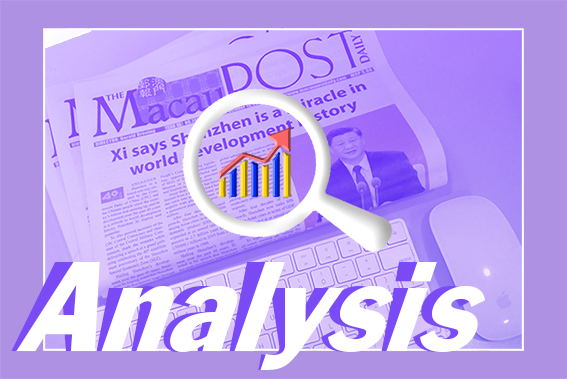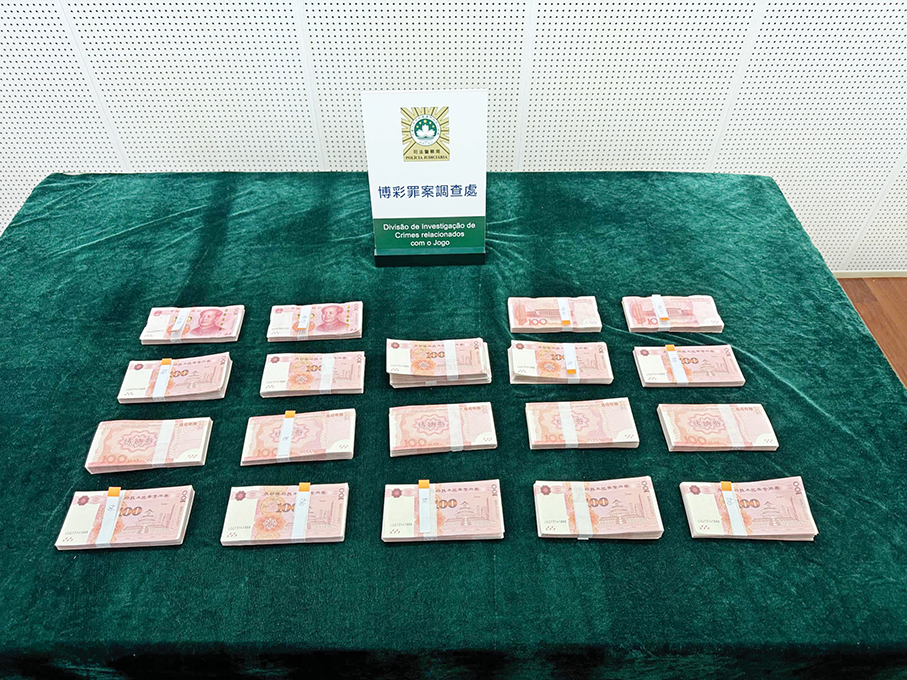By three methods we may learn wisdom: First, by reflection, which is noblest; second, by imitation, which is easiest; and third by experience, which is the bitterest. – Confucius
Court of Final Appeal (TUI) President Sam Hou Fai’s speech at last week’s ceremony marking the formal commencement of the new Judicial Year in which he called for a careful reflection on Macau’s Portuguese-style legal system ruffled a few feathers in the legal fraternity and beyond.
Well, I concur with award-winning American writer Meg Wheatley who famously said that “without reflection, we go blindly on our way, creating more unintended consequences, and failing to achieve anything useful.”
Born in 1962, Sam, who studied in Coimbra and reputedly became the world’s youngest supreme court judge when he was appointed Macau’s highest-ranking judge in 1999, also called in his speech “for a heedful analysis of the challenges and problems coming along with implementing a legal system that, for historical reasons, has been inspired by the one in Portugal” – nearly 11,000 kilometres west of Macau.
Sam underlined that Portugal’s ethics, value system, customs, cultural heritage and many other aspects “diverge considerably from those in Macau, adding that “these disparities deserve our attention when drafting and implementing laws, and we must face them with immense foresight.”
He mentioned as an example of the obvious socio-cultural differences between Macau and Portugal concerning the issue of judges’ right of recusal, known in Portuguese as “impedimento”. (For details please see our article “Top judge urges reflection on Portuguese-style legal system”, published on Thursday.)
I liked what I heard for the simple reason that what Sam said makes sense.
Besides, the legal system of the Macau Special Administrative Region (MSAR) is certainly mature enough for this kind of reflection by our most senior judge.
Macau’s judicial system has grown in leaps and bounds over the past three decades. I remember that not long ago just one building sufficed to house our city’s whole judiciary – what is now known as the Old Courthouse in Avenida da Praia Grande – and in the 1980s the medium-sized edifice still housed several other government departments as well.
At that time Macau’s judicial system was nanoscopic and the number of judges, prosecutors and lawyers stood at just a few dozen. I remember a jocular high-tea conversation with one of Macau’s most prominent lawyers at the venerable Solmar café near the courthouse in the late 1980s who admitted that most people in Macau, ethnic Chinese in particular, were avoiding the law courts like the plague because of the judicial system’s notorious sluggishness and perceived unfathonableness.
The situation improved gradually but steadily in the 1990s in the run-up to the establishment of the MSAR in 1999, after which a fully-fledged three-tier judicial system including the power of final adjudication finally came into being. In the meantime the number of judicial and legal practitioners has grown to nearly 100 judges and public prosecutors and close to 600 barristers and trainees – and a growing number of them are locals. I am convinced, however, that the continued presence of some non-local judges, prosecutors and lawyers can play a positive role in ensuring that our legal system maintains its international outlook, a must for a city that aims to become a world centre of tourism and leisure, and business service platform for relations between China, the Portuguese-speaking world and the Chinese diaspora.
But the most crucial challenge is to ensure that our legal system – the judiciary in particular – is aptly suited for Macau’s ever-changing socio-economic development. Legal systems can’t be static, they must be dynamic to be able to serve the needs of civil society and, something that is increasingly important, the local business community. And it must be a localised system. The Sino-Portuguese Joint Declaration on the Question of Macau of 1987 states that “the laws currently in force in Macau will remain basically unchanged”. The emphasis in this context must be, obviously, on the word “basically.” Anything else would be malarkey. The legal systems of mainland China and Portugal, for instance, have profoundly changed – and improved – since the launch of Deng Xiaoping’s reform and opening-up policy (改革開放) in 1978 and the Carnation Revolution (Revolução dos Cravos) in 1974 respectively.
Legal systems that aren’t able to move with the times become a hindrance to social development, and in the specific case of Macau our judiciary must take in account that Chinese ethics, social values, culture and customs are the bedrock of our city’s multicultural society. Law and culture cannot be disentangled.
Not to put too fine a point on it, most local residents still have a rather rudimentary understanding of our legal system. The issue should be addressed by making basic legal studies an integral part of secondary schools’ civic and patriotic education including, for instance, visiting a trial hearing so that pupils realise what it means to end up in the dock, being accused by a prosecutor, being defended by a lawyer and facing the (symbolic) gavel of a judge. Schools’ court visits are quite common elsewhere.
Chief Executive Ho Iat Seng pledged in his speech at Thursday’s ceremony that the rule of law continues to be one of the fundamental principles of the MSAR. He also said that the government would persist in defending the judicial system’s independence and impartiality. I would have expected nothing less.
Macau’s judiciary works within the framework of an executive-led political system. Let’s be clear, there is no Western-style separation of powers in Macau. Our judges and prosecutors should stay clear of politics so that our judicial system avoids problems that increasingly have been plaguing Western countries, such as the judicialisation of politics – i.e. the reliance on the courts for addressing policy issues and political controversies such as in the US – and the politisation of the judiciary – i.e. judges and prosecutors engaging in political activism such as in Brazil.
It is imperative that our judges and prosecutors avoid both external bias (such as by not giving in to pressure from big business, government officials or civic leaders) and internal bias (such as by not letting their personal prejudices, sympathies or antipathies interfere with the judicial decision-making process). That’s certainly easier said than done.
Anyhow, what Macau needs is a judiciary that is efficient, upright and equitable – and that’s why we all need to reflect, at least once in a while, on how to achieve this foremost aim for the common good. Quite rightly, that’s what our chief judge did last week.
– Harald Brüning






